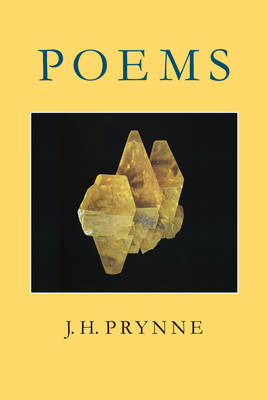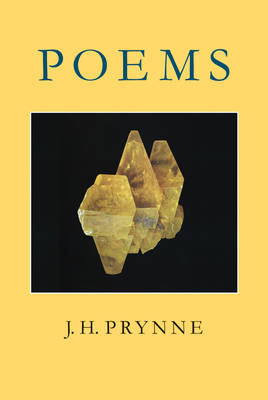
- Afhalen na 1 uur in een winkel met voorraad
- Gratis thuislevering in België vanaf € 30
- Ruim aanbod met 7 miljoen producten
- Afhalen na 1 uur in een winkel met voorraad
- Gratis thuislevering in België vanaf € 30
- Ruim aanbod met 7 miljoen producten
Zoeken
Omschrijving
J.H. Prynne is Britain's leading late Modernist poet. His austere yet playful poetry challenges our sense of the world, not by any direct address to the reader but by showing everything in a different light, enacting slips and changes of meaning through shifting language. Not since the late work of Ezra Pound and the Maximus series of Charles Olson have the possibilities of poetry been so fundamentally questioned and extended as they are in the life work of J.H. Prynne. When his Poems was first published in 1999, it was immediately acclaimed as a landmark in modern poetry, and nominated for a New Yorker book prize. Four further collections were added to the second edition of Poems in 2005. This expanded third edition of Poems (2015) includes the complete texts of his later work: Refuse Collection (2004), To Pollen (2006), STREAK WILLING ENTOURAGE ARTESIAN (2009), Sub Songs (2010), Kazoo Dreamboats; or, On What There Is (2011), and Al-Dente (2014), all previously available only in limited editions. Poems includes his 1969 collection The White Stones - central to his poetics - which was reissued in 2016 by New York Review Books with an introduction by Peter Gizzi.
Specificaties
Betrokkenen
- Auteur(s):
- Uitgeverij:
Inhoud
- Aantal bladzijden:
- 688
- Taal:
- Engels
Eigenschappen
- Productcode (EAN):
- 9781780371542
- Verschijningsdatum:
- 23/04/2015
- Uitvoering:
- Paperback
- Formaat:
- Trade paperback (VS)
- Afmetingen:
- 155 mm x 234 mm
- Gewicht:
- 1247 g

Alleen bij Standaard Boekhandel
+ 69 punten op je klantenkaart van Standaard Boekhandel
Beoordelingen
We publiceren alleen reviews die voldoen aan de voorwaarden voor reviews. Bekijk onze voorwaarden voor reviews.











